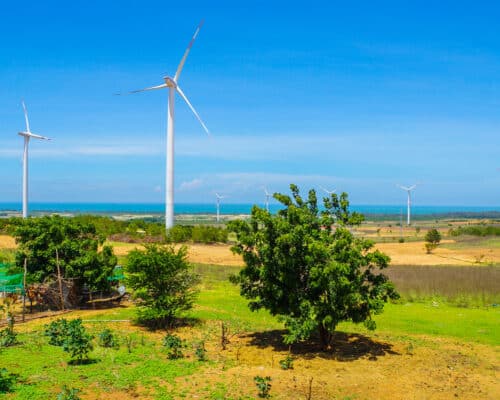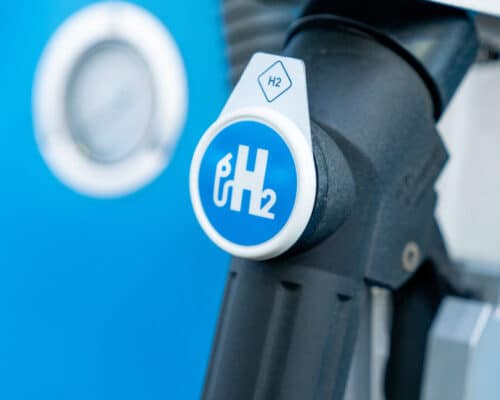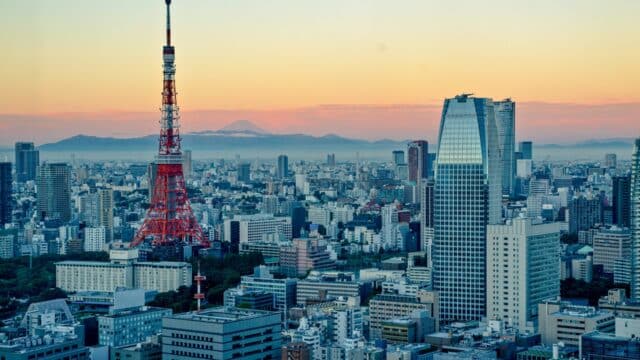G7 Summit 2023: What to Expect
03 May 2023 – by Eric Koons
The Group of Seven (G7) Summit is an annual meeting between seven of the world’s most advanced economies, and the 49th G7 Summit 2023 is happening in Hiroshima, Japan. The core members are Canada, France, Germany, Italy, Japan, the United Kingdom and the United States. These seven countries are joined by the European Union, which acts as a non-enumerated member.
The G7 focuses primarily on macroeconomic issues such as economic security, food security, international peace etc. As seven of the world’s largest developed economies, the group can set the tone and direction of international diplomacy.
This year, the G7 meeting is taking place in Japan. While the G7 presidency benefits Japan, it is also causing the country’s record on climate action to come under scrutiny. This is at a time when the G7 is increasingly focusing on limiting climate change and adapting to its impacts.
Successive G7 summits have seen the respective hosts and presidencies announce new initiatives, from improving energy research and reforms in 2017 to increasing global corporation tax in 2021 and unlocking investment for climate action in 2022. This year’s event will be a major one for Japan.
Where Is the G7 Summit Being Held in 2023?
Hiroshima, a symbolic host city, will be the location for the 49th G7 Summit 2023 from May 19-21, 2023. Hiroshima was the site of the first nuclear bomb used as part of the United States’ push to end World War II. The city’s rebuild has been linked with a renewal of Japan’s socioeconomic development.
The city has long stood as a warning against the proliferation of nuclear weapons and has become environmentally progressive. In 2017, Hiroshima set a long-term goal to cut greenhouse gas emissions by 80% by 2050 compared to 2013 levels. Additionally, its decarbonisation plans outlined climate adaptation strategies, making it one of the first cities in the region to do so.
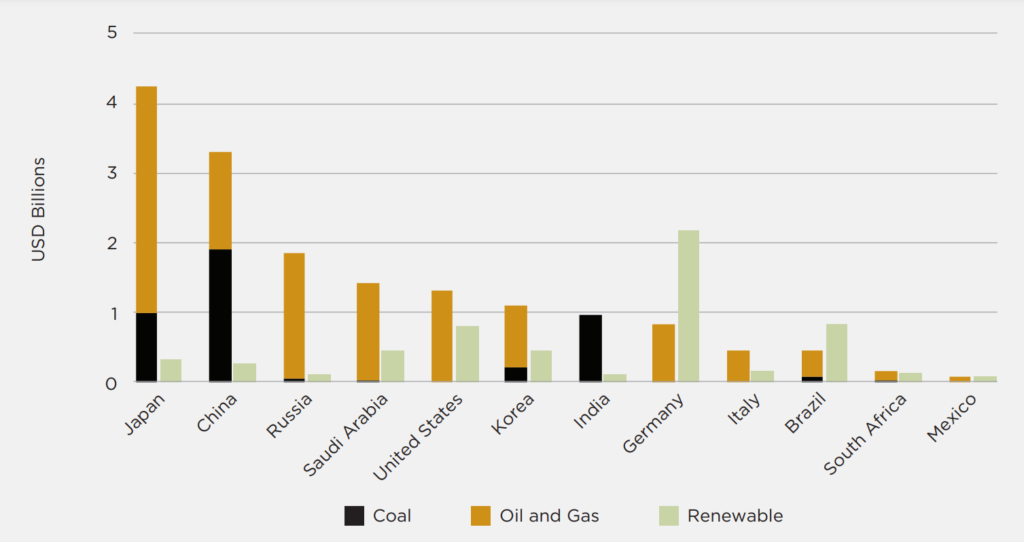
Hiroshima has become an icon of climate action in Japan, yet there is little information on its decarbonisation progress. There are questions about whether the city’s progress reflects its behaviour within Japanese policy and governance.
In 1997, Japan hosted the third UN Climate Summit, COP3, and brokered the Kyoto Agreement. However, The Guardian’s Justin McCurry and Fiona Harvey note that Japan’s government has struggled to build on the COP3 legacy. They say, “Its role in financing major oil, gas and coal projects earned Japan – the world’s fifth-biggest emitter of greenhouse gases – a ‘fossil award’ from the Climate Action Network at the COP27 summit.”
Behind the veneer of its high-tech industry and strong international pledges, Japan is not on track to meet its own goals on the climate. This is something activists will point out throughout the G7 meeting in Hiroshima.
The Role of the G7 in Climate Action
As major economic powerhouses with considerable capital and diplomatic sway, members of the G7 should lead by example. With some of the world’s most significant historical and current emitters forming the G7, global decision-makers are closely following G7 countries’ climate change actions. As such, member countries have sought to factor climate into their efforts.
Climate Recommendations for the G7
The Academies of the G7, the body’s scientific board, have made similar recommendations as the Intergovernmental Panel on Climate Change (IPCC). Both advise stronger decarbonisation efforts through actively transitioning away from fossil fuels and working with developing countries to improve their resilience. Japan has been quiet, whereas the remaining G7 nations have made some concessions. However, Japan still remains off track with global recommendations.
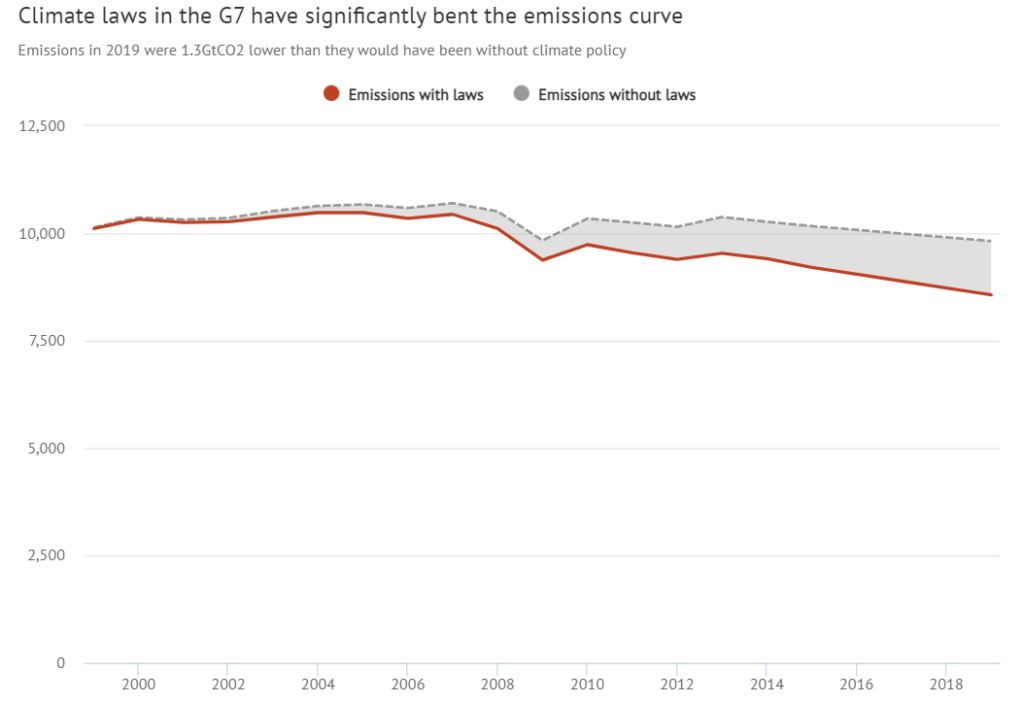
“There was little evidence of any desire to burnish Kyoto’s legacy among the Japanese delegation at COP27. Japan played a low-key role during the two-week conference, supporting moves to reaffirm the global target of limiting greenhouse gas emissions to 1.5C above pre-industrial levels, but without taking a significant public stance on the issue,” McCurry and Harvey wrote in The Guardian.
Additionally, the country’s Prime Minister Kishida did not attend the summit when more than 100 world leaders did.
Japan’s Status on the Climate
The country remains at an “insufficient” level in terms of climate action, according to Climate Action Tracker. Japan’s mounting inaction and silence on climate speaks volumes and is coming to a head as it hosts the G7 Hiroshima summit of 2023. Will the other six nations coax action from its seventh member?
by Eric Koons
Eric is a passionate environmental advocate that believes renewable energy is a key piece in meeting the world’s growing energy demands. He received an environmental science degree from the University of California and has worked to promote environmentally and socially sustainable practices since. Eric’s expertise extends across the environmental field, yet he maintains a strong focus on renewable energy. His work has been featured by leading environmental organizations, such as World Resources Institute and Hitachi ABB Power Grids.
Read more